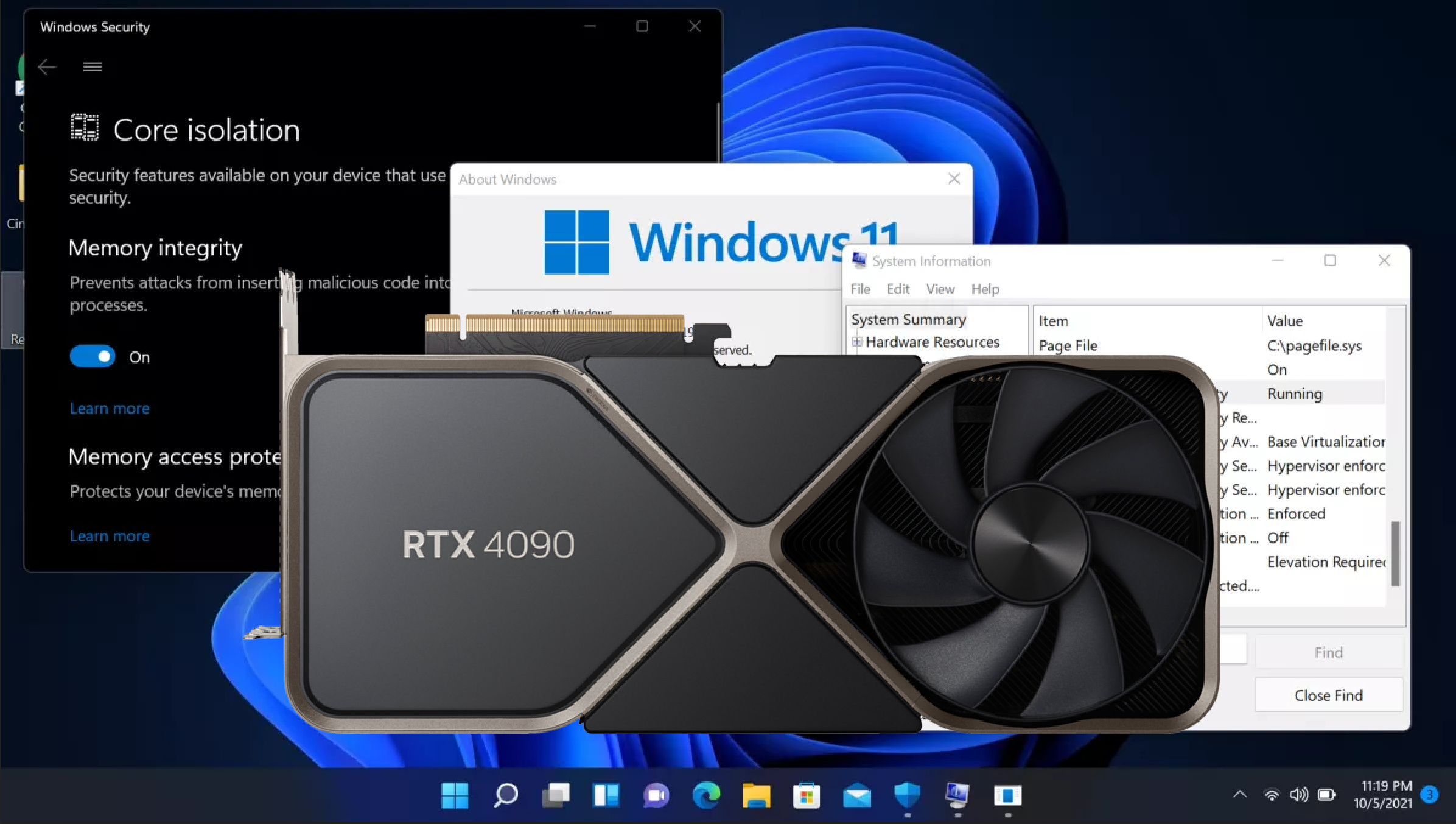
Tested: Default Windows VBS Setting Slows Games Up to 10%, Even on RTX 4090
-
12tL3znmoXU
-
Yeah, I knew this hurt FPS long time ago, but I forgot all about it when I reinstalled windows, turning it back off lol
-
Yeah, I knew this hurt FPS long time ago, but I forgot all about it when I reinstalled windows, turning it back off lol
This was me with the 13900K. New test build, totally forgot about VBS. Which is really why this article exists. I freaked out and thought, “OMG how much performance am I losing because of VBS!?” Thankfully, everything was tested on the 13900K with it enabled, so it’s still “fair” in that sense. But I’m left trying to decide if I should retest the various GPUs with VBS disabled, or stick with the Microsoft default of having it on? Decisions, decisions…
-
It’s incredibly irresponsible to promote disabling important security features.
-
It’s incredibly irresponsible to promote disabling important security features.
Security is all about risk management. We have to know what these features do in detail, how they impact our system usage, and the probability of scenarios in which not having this security feature enabled or available would be a problem. For example, you might say it’s incredibly dumb to run Windows XP because of how insecure it is now. Except… just don’t plug it into the internet (or a network that has free access to the internet) and nearly all of that risk goes away.
In the case of businesses and whatnot, some may not deploy security patches immediately, or at least not to every system they have. If the security patch creates other issues, that could bring down the entire business, and they would have to roll back the patch anyway.
Otherwise blindly saying every security feature should be used may as well be telling everyone they need to get on Windows 11 right now (and if they don’t have supported hardware, they need to buy it) and saying they can stay on 10 is irresponsible.
-
I would say that with a 5% average FPS difference at 1920×1080 and 2% difference at 3840×2160, that’s a negligible and expected difference between a prepared benchmark machine and typical PC, especially if you look at the actual performance differences and see that the most affected game, MS Flight Sim, goes from 151.9 to 168.8 fps, you’re not jumping into any new performance tiers, you’re still a solid 144hz.
I think anyone using a system costing the better part of $3000 would be more concerned about getting just 40FPS in Cyberpunk 4K than going from 319FPS to 350FPS in Borderlands at FHD.
-
Thanks Jarred, this was a timely headsup! Also I’m glad to see you’re diligent about squeezing every bit of performance out of your setup.
-
It’s incredibly irresponsible to promote disabling important security features.
I’ve been reading about what this feature does for the last 30 minutes and I have to agree.
This should not be disabled.
This is the windows hypervisor, it is a critical part of Windows their security system. It abstracts running processes from the core OS and private user data.
Not only does it protect you from viruses, malware, etc, it also protects you from programs that are not viruses, from accessing your files, even in offline mode.
-
It abstracts running processes from the core OS and private user data.
WOW! Windows users can now go to sleep with the ease of mind that their private data is safe at the trustworthy hands of Microsoft. A small performance regression (on a 13900k no less.. not sure how severe the penalty would be on lower end CPUs that normal people use) is the price to pay for guranteed private user data protection (Microsoft’s red line).
Nothing to see here.. move along people.


Reply